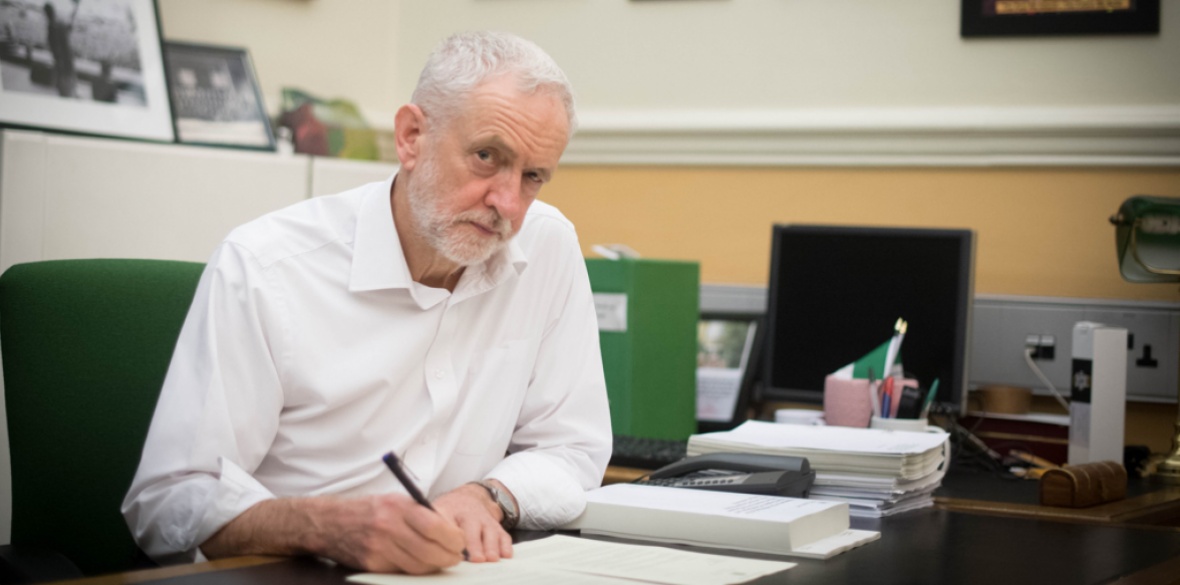ATTACKS on both Jeremy Corbyn and Len McCluskey from Remain supporters show that for many advocates of a so-called People’s Vote, splitting the left takes precedence over practical policy-making.
The hint, delivered anonymously to the FT, that Unite is trying “to get Jeremy Corbyn off the hook” by proposing Brexit compromises indicates the real target of these briefings.
The Labour leader’s refusal to be bounced into support for a second referendum enrages the Labour right. Few of these doom-mongers like to acknowledge that the public have already voted on whether to stay in the EU.
Chris Leslie laments that he may have to consider his membership of the party if it “enables Brexit,” as if carrying out a policy democratically agreed in a country-wide vote is morally unacceptable.
Defeated leadership rival Owen Smith declares that “Brexit is wrong in principle for our country and wrong in practice” and also hints at leaving Labour if he doesn’t get to stop it. He is silent on whether having resigned the whip he would call a by-election to see if his majority Leave-supporting constituents appreciate his stance.
MPs who rail against a no-deal Brexit one day and denounce their leader for suggesting a compromise to the Conservatives the next offer no way forward.
If Parliament cannot agree some kind of deal, then no deal is the result. The apocalyptic depictions of no deal in the media are unjustified, but given Labour’s members, MPs and affiliated unions overwhelmingly oppose it there is nothing shocking in Corbyn looking to find an alternative.
So what is Labour proposing? “Dynamic alignment on rights and protections” for workers — fair enough, so long as the alignment represents a floor rather than a ceiling.
On workers’ rights such as maternity leave (where Britain grants a statutory 52 weeks to the EU’s 14) or paid holidays (where our statutory minimum is 28 days compared to 20 in the EU) we do not wish to be tied to anything that could undermine workers’ rights here, especially as workers’ rights are under attack in EU states from France to Hungary.
Such alignment does not obviate the need to fight in this country to improve and extend workers’ rights along the lines of the Institute of Employment Rights’s Manifesto for Labour Law, but it shouldn’t interfere with that fight either.
As for “close alignment” with the single market underpinned by “shared institutions,” what institutions are meant? There is less to fear from continued participation in the European Food Safety Authority or the European Chemicals Agency (despite their obvious failings on tackling the use of carcinogenic pesticides like glyphosate) than there is from continued subjection to rulings from the EU Court of Justice, which has restricted our right to strike in judgements like Laval, Viking and Ruffert.
Labour’s five proposals are a compromise. They do not represent what Labour would negotiate if it had the opportunity: this is no doubt why the list is far less ambitious than the Brexit vision outlined by Corbyn in Coventry nearly a year ago, when he pledged to “negotiate protections, clarifications or exemptions … in relation to privatisation and public service competition directives, state aid and procurement rules” and vowed that “we cannot be held back inside or outside the EU from taking the steps we need to support cutting-edge industries and local business [and] stop the tide of privatisation and outsourcing.”
Until a general election changes the game, Brexit is not Labour’s to negotiate. On the other hand, articulating a positive and ambitious vision of our future outside the EU, and how Labour would approach that differently from the Conservatives, is essential both to general election success and to transforming an economy broken by neoliberalism and austerity.
Labour needs to be bolder about that vision, and its supporters more proactive in fighting for the election that will make it possible.












